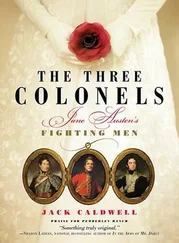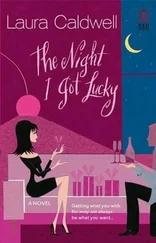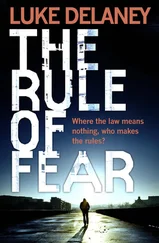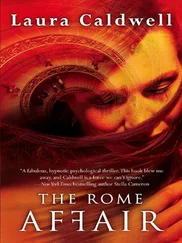Come on. I yank him toward the bookshelves by the rear exit.
Just then, the front door to the library opens and the beam of a flashlight lances across the room. We duck into a corner. Both officers enter the room.
Over there , the first officer says, gesturing in our direction.
I grab the knob and press the back door open. Paul ducks into the hallway as the first policeman nears. On my haunches, I clamber out and regain my feet. We slide with our backs to the wall, and Paul leads us to the stairs, racing toward the ground floor. When we return to the open space of the main hall, I can see a flashlight skirting a nearby wall.
Downstairs, Paul says. There's a service elevator.
We enter the Asian wing of the museum. Sculptures and vases sit behind ghostly walls of glass. Chinese scrolls lie unraveled and mounted beside tomb figures in display cabinets. The room is a murky shade of green.
This way, Paul urges as the footsteps come closer.
He leads me around a corner, back into a dead end, where the only exit is the large pair of metal doors to the service elevator.
Voices grow louder. I can make out two policemen standing at the foot of the stairs, trying to find their way around in the dark. Suddenly the entire floor is illuminated.
''We got lights … comes the voice of a third.
Paul forces his key into the slot on the wall. When the elevator doors part, he pulls me in. A barrage of footsteps follows, moving in our direction.
Come on, come on… .
The doors remain open. For a second I think they've cut the power to the elevator. Then, just as the first officer turns the corner, the metal walls slide shut. A hand beats against the doors when the officer catches up, but the sound fades as the cabin begins to move.
Where are we going? I ask.
Out the loading docks, Paul says, trying to catch his breath.
We exit into a holding area of some kind, and Paul forces open the door leading into a huge, cold room. I wait for my eyes to adjust. The garage doors of the loading bays loom before us. The wind outside is so close, it's making the metal panels tremble. I imagine footsteps racing downstairs in our direction, but nothing is audible through the thick door.
Paul rushes over to a switch on the wall. When he turns the knob, an engine stirs and the retractable loading door begins to budge.
That's enough, I say, once the opening is big enough to admit both of us on our backs.
But Paul shakes his head and the door continues to rise.
What are you doing?
The gap between the floor and the bottom of the door increases until it brings the entire vista of south campus into view. For a second I'm stopped short by how beautiful it is, how empty.
Suddenly Paul turns the motor knob in the opposite direction and the door starts to roll shut.
Go! he cries.
He darts from the wall toward the open bay, and I fumble, trying to get on my back. Paul is already in front of me. He rolls beneath the door, then pulls me out just before the metal connects with the ground.
I stand up, trying to catch my breath. When I begin moving in the direction of Dod, Paul jerks me back.
They'll see us from upstairs. He points to the windows on the west side of the building. After scanning the path to our east, he says, This way.
Are you okay? I ask, following.
He bobs his head and we trudge into the night, away from our quad and out of their sight lines. I can feel the wind beneath my coat collar, cooling the sweat on my neck. When I look back, Dod and Brown Hall are almost purely dark, as is every dormitory in the distance. Night has reached all corners of campus. Only the windows at the art museum are shot with light.
We continue east through Prospect Gardens, a botanical wonderland in the heart of campus. The tiny spring plantings are dashed with white, almost invisible underfoot, but the American beech and the cedar of Lebanon stand like guardian angels above them, arms outstretched to shoulder the snow. A police car patrols one of the side streets, and we pick up our pace.
My thoughts are jumpy, my mind working to understand what we've seen. Maybe it was Taft we saw at Stein's desk, rifling through his papers, erasing any connection between them. Maybe he called the police on us. I look over at Paul, wondering if the same thought has crossed his mind, but his expression is blank.
In the distance, the new music department shows signs of life.
We can go in there for a while, I suggest.
Where?
The practice rooms in the basement. Until we're clear.
Stray notes float in the air as we near. Night-owl musicians come to Woolworth to rehearse in private. Down toward Prospect, another campus police car skids by, splashing slush and rock salt onto the curb. I force myself to walk faster.
Construction on Woolworth has only recently finished, and the building that emerged from the scaffolding is a curious thing, fortresslike from the outside but glassy and fragile-looking from within. Its atrium curves like a river through the music library and classrooms on the ground floor, rising three stories to skylights above. The wind howls jealously around it. Paul unlocks the entrance to the building with his ID card, holding the door as I pass through.
Which way? he asks.
I lead him to the nearest staircase. Gil and I have been here twice since the building was opened, both times after drinks on a slow Saturday night. His father's second wife insisted that Gil learn to play something by Duke Ellington, the same way my father insisted that I learn something by Arcangelo Corelli, and between us we have eight years of lessons and almost nothing to show for it. Thumping our bottles on the top of an old baby grand, Gil would bungle 'A' Train, I would butcher La Follia, and we would pretend to keep a beat that neither of us had ever learned.
Paul and I pad down the basement hallway, to find that only one piano is still at work. Someone in a distant practice room is playing Rhapsody in Blue. We slip into a small, soundproof studio, and Paul edges behind the upright piano, taking a seat on the stool. He looks at the keys of the piano, mysterious as computer keys to him, and doesn't touch them. The overhead light sputters for a second, then goes dead. It's just as well.
I can't believe it, he says finally, taking a deep breath.
Why would they do it? I ask.
Paul runs his index finger across a key, scratching at the ebony. When he seems not to hear the question, I repeat myself.
What do you want me to say, Tom?
Maybe this is why Stein wanted to help in the first place.
When? Tonight with the diary?
Months ago.
You mean, when you stopped working on the Hypnerotomachia ''
The chronology is a jab, a reminder that Stein's involvement traces ultimately back to me.
You think this is my fault?
No, Paul says quietly. Of course not.
But the accusation hangs in the air. The map of Rome, like the diary, has reminded me of what I left behind, how much progress we made before I left, how much I enjoyed it. I look at my hands, curled up in my lap. It was my father who said I had lazy hands. Five years of lessons hadn't produced a single presentable Corelli sonata; that's when he started pushing basketball instead.
The strong take from the weak, Thomas, but the smart take from the strong.
What about the note to Curry? I say, fixing on the back of the piano. The wood is unvarnished and raw along the entire side, where the upright is supposed to face a wall. It strikes me as a strange economy, like a professor who doesn't brush the back of his hair because he can't see it in the mirror. My father used to do that. It was a defect of perspective, I always thought-the mistake of someone who could only see the world one way. His students must have noticed it as often as I did. Every time he turned his back on them.
Читать дальше












